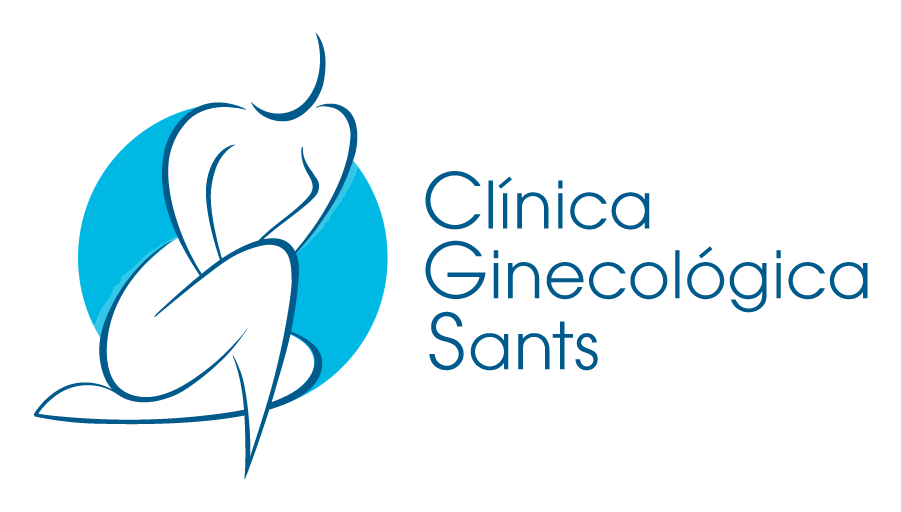Obstetrics and pregnancy monitoring
Welcome to Clínica Sants, your trusted gynecology clinic for obstetrics and pregnancy monitoring in Barcelona
Prices
Visit + Transvaginal Ultrasound
80€
Visit + Pregnancy ultrasound monitoring
120€
Visit + Morphological ultrasound
220€
⚠️ Changes in gynecology services ⚠️
Starting from October 2023, gynecology services not related to abortion services will be carried out at the new Badal Medical Center, located 100 meters from the Sants Gynecological Clinic.
The following services will be carried out at the new center:
- Gynecology
- Obstetrics
- Vaginal Laser and incontinence
For more information, please visit Centro Médico Badal's website.
FAQ
1. What is obstetrics?
Obstetrics latin Obstare it means to be waiting. It is a branch of the Health Sciences that deals with women throughout their reproductive period (pregnancy, childbirth and postpartum).
The OB-GYN, you will be referred to a specialist and is responsible for monitoring pregnant women in case they might cause problems during pregnancy, problems such as during the first trimester and second trimester vaginal bleeding, threatened abortion, abortion, etc. and during the third quarter of preterm delivery, placenta previa, gestational diabetes, gestational hypertension, etc.
2. Are you pregnant?
Women during their fertile period and sexual activity, which is the absence of menstruation in regular menstrual cycles can suspect that is before pregnancy and can make a diagnosis can be performed.
Get in touch with us and make an appointment for obstetrics and pregnancy monitoring in Barcelona.
3. Diagnosis of pregnancy
There are two ways to tell if you’re pregnant:
Laboratory analysis:
I. Test urine pregnancy (clearblue)
II. Identifying a blood fraction chorionic gonadotropin (B-hCG)
Ultrasound on ultrasound scanning in pregnancy is displayed indicating their location, ie, whether it is within or outside of a uterine pregnancy (e. Ectopic). It serves to make an early diagnosis of pregnancy and time valuing gestational age and to assess fetal growth and development during the various stages of gestation.
4. Transvaginal ultrasound and abdominal ultrasound
In Sants Gynecological clinic we provide you with the possibility to assess fetal growth and development during the first weeks of pregnancy by:
Transvaginal ultrasound: This is the type of ultrasound of choice for early diagnosis of pregnancy, given the proximity of the instrument (ultrasound probe) with internal gynecological structures. The internal genitalia and is defined more as you can pinpoint the location of intra or extra-uterine pregnancy. It requires no preparation to take place.
Abdominal ultrasound: is a type of ultrasound that allows us to visualize the internal genitalia through the abdomen using an ultrasound probe that facilitates the transmission of the image to a monitor.
If you want to make a diagnosis of pregnancy during the first trimester a good bladder filling (the woman an hour before drink one to two liters of water and come to the clinic without urinating for exploration) is required.
This type of ultrasound if carried out during the second and third quarter does not require any preparation.
Conducting ultrasound is painless and is not harmful to health because it doesn’t use radiation!
5. Pregnancy monitoring and prenatal care
In this section, we have seen fit to put at your disposal the most fundamental and basic to consider regarding Obstetrics and Pregnancy Monitoring in Barcelona:
1. Prenatal Consultation
I. What is it?
Prenatal care is the query that must perform before getting pregnant. So if you decide to get pregnant you should consider the following:
1. Purpose of this consultation: The purpose of this consultation is to prepare to deal with an optimal level of health conception. So its objectives are:
-To Detect and treat diseases associated with poor reproductive process.
-To value the risk of pregnancy (particularly those at high risk).
-Preparation Of the couple for pregnancy, birth and newborn care.
II. What does it consist of?
It is to achieve the above objectives by:
- Complete clinical history that includes additional tests such as:
- Blood type and Rh factor
- Blood count and basic biochemistry
- Serology: rubella, toxoplasmosis, syphilis, HIV.
- Other analyzes, ultrasound, etc.
- Preconception advice
- Folic acid: It really is the only medication that every woman should take before getting pregnant to prevent neural tube defects.
- If the medical history of these diseases can be corrected and controlled but as in the case of chromosomal abnormalities will be given the right advice to follow is detected.
- Wanting pregnancy after certain situations:
- After an abortion: We recommend a rest period of three to six months (depending on age, mental state, etc.).
- After you stop taking oral contraceptives, believe it goes without a rest period.
- After removal of an IUD: believe it goes without a rest period.
2. Monitoring of pregnancy
I. What is it?
They are all medical procedures that are performed throughout pregnancy and childbirth. They are important to achieve a reduction in maternal and fetal morbidity and mortality.
Assumptions: It is necessary that if you think you are pregnant (menstrual delay of more than five days’ pregnancy test urine positive that you can apply at the pharmacy or make yourself buying the kit) you come quickly to the first visit to :
-Valuation Ultrasound gestational age will be more accurate the earlier the visit.
-Valuation Individual risk and determine what level of care is most appropriate for your monitor.
II. What does it consist of?
It is to perform:
Doctor visits: one visit per month until 36 weeks, and suggest a biweekly to 40 weeks.
During these visits, he will control:
-The Weight, blood pressure, albuminuria, edema, circulatory disorders.
-The SFH.
-The Fetal heartbeat after 14 weeks.
-Situation And fetal position after 28 weeks.
– We will ask ultrasound and analytical relevant.
-Valuation Symptoms, ultrasound, laboratory you have in each visit and its corresponding treatment, or request other tests if required.
Ultrasound controls: During the normal course of pregnancy, it is recommended to get four ultrasound examinations.
- Initial Ultrasound should be performed at the first visit to:
- Diagnose pregnancy
- Determine gestational age
- Assessing the number of embryos.
- Assess whether the egg or gynecological pathology associated pathology.
-
- Check the vitality of the embryo
- Ultrasound to detect chromosomal markers (especially the nuchal translucency)
Second trimester ultrasound: You must be between 19-20 weeks and in a highly specialized ultrasound center and the ultrasound inspection in these weeks is essential for the diagnosis of bad training shortcomings.
Ultrasound of the third quarter: You must be between 34-36 weeks to assess: - First trimester ultrasound: You must be between 12-14 weeks for:
- Proper fetal growth
- Study of fetal anatomy
- Location and placental aging
- Amniotic fluid volume
- Welfare fetal (fetal movement, breathing movements, fetal tone)
III. Routine analytical controls:
- First trimester:
On the first visit should be sent: Complete blood count, blood group and Rh factor, blood sugar, serology (syphilis, toxoplasmosis, rubella and HIV if the previous immune status is unknown), urinary sediment.
- Second trimester:
At 15 weeks of pregnancy (according to ultrasound) should be sought sreening triple for risk assessment of Down and neural tube defects syndrome. It consists of a simple blood test and if the results are high risk, then performing amniocentesis which is what will give us the diagnosis is necessary.
Between 24-28 weeks and should be sent: CBC, Sullivan test and if positive blood glucose curve (used to detect a possible gestational diabetes), indirect Coombs test (if you are Rh negative), toxoplasmosis should be (if the previous quarter was negative) and urinary sediment.
- Third trimester:
Between 32-34 weeks and should be sent: CBC, coagulation indirect Coombs test (if you are Rh negative), hepatitis serology and urinalysis.
At 35 weeks, vaginal culture should be requested.
IV. Considerations:
- Medication during pregnancy:
Folic acid
Iron supplement: only if they are necessary according to the results of the analysis.
- Fetal monitoring: This is done to assess fetal well-being and the first shall be made at 38 weeks, then 39 weeks, 40 weeks and from there every other day until 41 weeks 3 days.
- Amniocentesis involves aspiration of a sample of amniotic fluid for diagnostic tests of fetal wellbeing (malformations, chromosomal abnormalities, fetal infections, metabolic disorders, etc.) with a 1% risk of causing abortion.
- Rh negative women: If a woman is not sensitized, a full dose of anti D immunoglobulin at 28 weeks will be administered. If the newborn is Rh positive, you need to repeat the dose in the first 72 hours after birth.
6. Prices
Medical Clinic Sants has packs and budget prices for visit diagnosis of pregnancy + abdominal ultrasound to find out if you are pregnant.
For other packs, consult OUR PRICES in the related section of our website. If you have any further questions on Obstetrics and Pregnancy Monitoring in Barcelona call us or email us at info@cgsants.es
Get in touch
This site is protected by reCAPTCHA and the Google Privacy Policy and Terms of Service apply.
According to Organic Law 2/2010, of March 3, on sexual and reproductive health and the voluntary interruption of pregnancy, Article 23: Deletion of data, ex officio, we will delete your personal information and email from this email or from any means digital for which you contact us.
BASIC INFORMATION ON DATA PROTECTION
In compliance with the duty to inform the interested parties of the circumstances and conditions of the processing of their data and of their rights to be informed, we make the following information available to them.
| RESPONSIBLE FOR THE TREATMENT | Responsible: Clínica Médica Sants, SL - CIF: B64934078 Dir. Postal: C/ Roger 23 Baixos, 08028, Barcelona |
| FINALITY | Manage your query/request and respond to it. |
| LEGITIMATION | Your consent. |
| RECIPIENTS | The data will not be transferred to third parties, except in cases in which there is a legal obligation or communication necessary to answer your query. |
| RIGHTS | You can exercise your Rights to access, rectify, oppose, limit, port and delete the data before the data controller; in addition to going to the competent control authority (AEPD). |
| INFORMACIÓN ADICIONAL | You can consult additional information on the processing of your personal data here. |
Phone number
Address
Calle de Roger, 23 08028 Barcelona
Opening hours
Saturday 8am - 2pm
More info
Links

Clínica Ginecológica Sants
08028 Barcelona
Opening hours
Monday - Friday 8am - 8pm
Saturday 8am - 2pm
